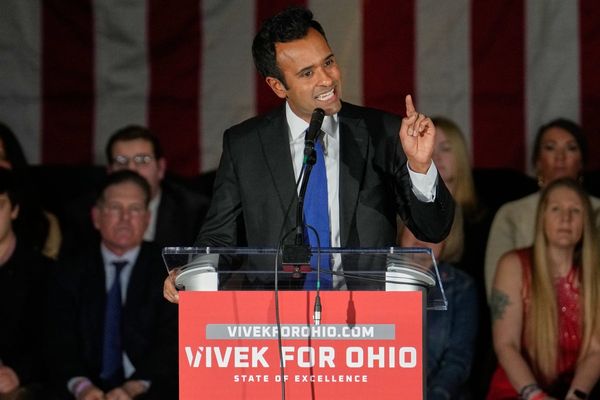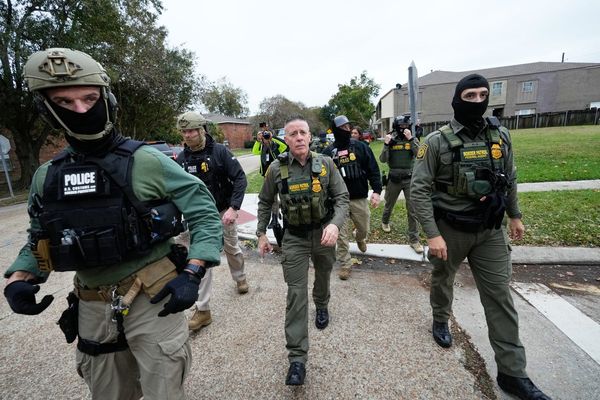One of the most decorated playing careers in rugby will come to an end on Saturday after England's all-time most capped player, Sarah Hunter, confirmed her retirement from the sport.
As well as making 140 appearances for her country to date—18 more than her nearest rival, Ben Youngs—Hunter is also the most capped women's player of all time. However, the 2023 Women's Six Nations opener against Scotland in her native Newcastle will be the final chapter in an inspirational tale.
"Not many athletes get to choose how and when they call time on their playing careers," said Hunter upon announcing her imminent exit from playing. "I am very fortunate that I have the opportunity to finish on my own terms. I couldn't think of a better way to do it than in my hometown where my rugby journey started."
Rightfully revered among her peers, Hunter is set to call time on a 16-year career that's comprised 10 Six Nations titles, nine Grand Slams, as well as her share of Rugby World Cup highs and lows. Mirror Sport chronicles the key moments in a career that helped transform the sport and bring England's women into the most successful period of their rugby history.
Humble beginnings and adaptation
Like many women rugby stars of her generation, Hunter's introduction to rugby union wasn't a straightforward one. She initially played rugby league for Longbenton and Gateshead Panthers before an end to the mixed-gender game meant Hunter had to take up the 15-a-side sport around age 12—and union was all the better off for it.

What's your favourite rugby memory from Sarah Hunter's glittering England career? Let us know in the comments section.
'Sunter' started playing for Lichfield Ladies in 2004, around the same time she started studying for a sports science and mathematics degree at Loughborough University. It was during her 11-year spell with the former top-flight outfit that she earned her England debut a few years later in 2007.
Having started out as a direct-running centre, Hunter was asked to make the move to what would become her home in the back row while representing England's under-19s. Her coach at Novocastrians RFC, Graeme Cooper, has been credited for helping Hunter through that period in what would be her springboard to rugby's summits.
Rewards and recognition

Establishing herself as an England staple as she racked up numerous Six Nations titles, Hunter would go on to play in four World Cups, including an integral role en route to the 2014 prize in Paris. She looked back upon that tournament as "a penny-drop moment" for her perception of women's rugby and her own profile, recalling the reaction her team received following England's second Women's World Cup (and their first since 1994).
"We got there and the streets were filled. Katy [Daley-Mclean] and I got off the bus together with the trophy to choruses of Swing Low, Sweet Chariot," she told BBC Sport. "It wasn't just our friends and family, it was people who had come over to watch the game."
Other plaudits soon followed as Hunter replaced Rochelle 'Rocky' Clark—the woman whose cap record she would go on to surpass—as England captain the following year. It was around that time she also received an MBE for services to rugby and joined Bristol Ladies before being named Women's World Rugby Player of the Year in 2016.
Cap record and closure
Accustomed to dealing with adversity, Hunter's playing future was put in doubt after suffering a nerve injury in her neck in October 2020, resulting in a 13-month absence from the field. But return she did, staging a timely comeback in time for the 2021 Women's Rugby World Cup (delayed to 2022) in New Zealand, where she finally overtook Clark as the most capped women's player in her 138th appearance.
England's skipper was crestfallen not to be able to lead the Red Roses to another World Cup success Down Under, though she could hold her head as high as any at their runner-up finish to the tournament hosts. Clark, 41, was among the first to pay tribute to "wonderful friend and team-mate" Hunter following Tuesday's announcement, hailing her old comrade as a "true legend of the game."
It's fitting Saturday's send-off comes opposite Scotland, against whom Hunter happened to make her England debut in a 60-0 trouncing 16 years ago. Just 21 at the time, she'll hope for similar success as family and friends form part of a much larger crowd at Kingston Park more than a decade-and-a-half on, and that growth of the game is as much a part of Hunter's rugby legacy as her record-extending 141st cap will be.







